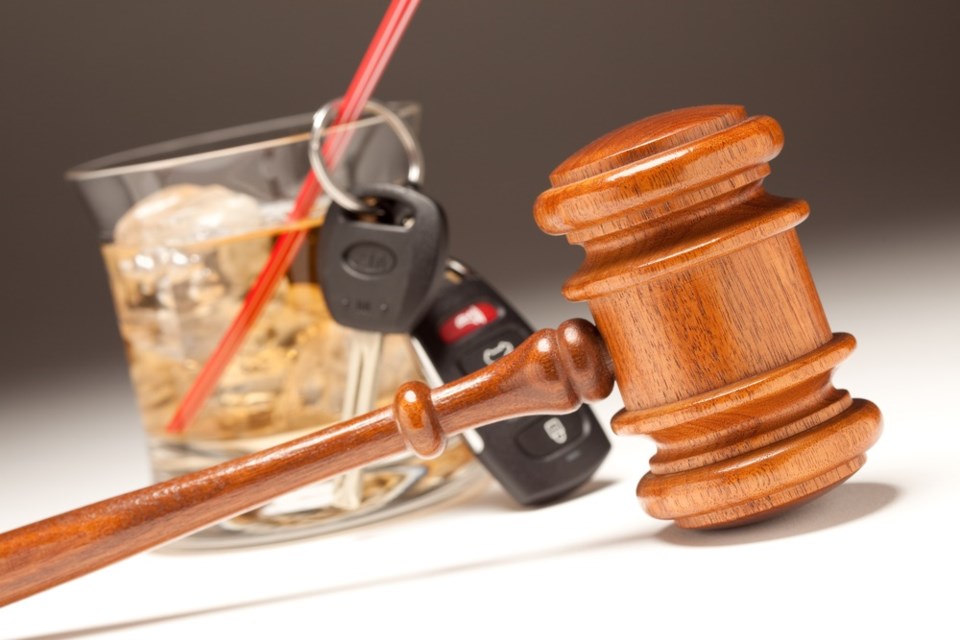Beginning Dec. 18, drivers should be prepared to hand over more than their licence, insurance and ownership papers during any kind of lawful stop by police.
That’s when the most significant Criminal Code transportation offences reform in 40 years kick in for alcohol-impaired driving, including giving police services the constitutional authority to demand a roadside breath sample from drivers — even without reasonable suspicion that the driver had consumed alcohol.
Among other things, the new law also raises the maximum penalty to life imprisonment for dangerous driving causing death, up from a maximum of 14 years, broadening the driving “over 80” definition to “at or over 80” within two hours of driving to eliminate legal defences that reward risky behaviours and make it harder to enforce drinking and driving laws, and mandatory fine increases for first offenders.
Mandatory alcohol screening has been shown to be an effective deterrent, as well as being effective at detecting alcohol-impaired drivers, Canada’s justice department said. For instance, about 50 per cent of drivers who are on the roads above the legal limit are not detected during R.I.D.E. and routine stop checks, the research suggests.
Canada joins about 40 countries worldwide that have authorized local police forces to demand roadside breath samples, including Australia, New Zealand, Finland, France, Sweden, and Ireland. Irish authorities reported a 23 per cent reduction in the number of people killed in alcohol-fuelled collisions on its roads within the first year of launching the program in 2006.
MADD York Region President Katie Apreda believes “strongly” that random, roadside alcohol screening is a move in the right direction.
“You may not see a R.I.D.E. stop, but you could pass many police officers on your way home,” Apreda said. “I’m hoping this will deter people from driving impaired.”
The Newmarket community joined the chorus calling for tougher drunk driving penalties and has overwhelmingly pledged its support for York Regional Police’s new so-called naming and shaming policy of publicly posting the name, age and hometown of those charged with impaired-related criminal driving offences.
York Regional Police Const. Andy Pattenden said that week after week, there’s a significant number of people making the choice to drink and drive or use drugs and drive. He pointed to the 26 drivers charged with 55 impaired-related criminal offences just this past week alone as evidence that people still aren’t getting the message.
“We’ve been saying for a very, very long time now that the safest amount of alcohol or drugs to have is zero,” Const. Pattenden said, adding that the York force’s first so-called R.I.D.E. (Reduce Impaired Driving Everywhere) or stop checks began in 1986.
“Everybody’s different, and every person processes alcohol or drugs differently. To be able to make a determination as to when you think you’re good to drive is risky. And we also know your ability to make that decision after you’ve had more alcohol or drugs is also more challenging to make. So really, the safest amount is zero.”
In frustration with what appears to be an anti-drinking and driving plateau, York police also produced a two-part educational social media video, Driving’s Tough Enough, which aims to shine a spotlight on the realities of impaired driving.
With regard to some criticism levelled at York police by a Toronto daily newspaper for its name-and-shame move, Const. Pattenden said the York police service has always had the authority to release the names of people charged with any criminal offence.
“The severity of the crime is increasing and we’re trying everything,” he said. “It’s been a lot of years of education and enforcement and creative campaigns to drive the message home. We’re trying everything and we’re not seeing the results changing. But we’re not going to give up.”
So far this year in York Region, five people have been killed as a result of impaired driving. York police have also laid more than 1,500 charges for impaired-related driving offences.
Here are the penalties for impaired driving as of Dec. 18, 2018:
Alcohol-impaired driving that does not cause bodily harm or death - mandatory minimum penalties:
- First offence + blood alcohol content (BAC) of 80-119 mg: mandatory minimum $1,000 fine
- First offence + BAC of 120-159 mg: mandatory minimum $1,500 fine
- First offence + BAC of 160 mg or more: mandatory minimum $2,000 fine
- First offence of refusal to be tested: mandatory minimum $2,000 fine
- Second offence: mandatory minimum 30 days imprisonment
- Third and subsequent offences: mandatory minimum 120 days imprisonment
Impaired driving causing no bodily harm or death - Maximum penalties:
- Summary conviction: 2 years less a day imprisonment
- Indictment: 10 years imprisonment
Impaired driving causing bodily harm - Maximum penalties:
- Summary conviction (for less severe injuries): 2 years less a day imprisonment
- Indictment: 14 years imprisonment
Impaired driving causing death - Maximum penalty:
- Life imprisonment
Wait time for provincial interlock program:
- First offence: no wait
- Second offence: 3 months
- Third and subsequent offences: 6 months
Testing:
- Police officers can require any lawfully stopped driver to provide a preliminary breath sample, even without reasonable suspicion that the driver has alcohol in their body



